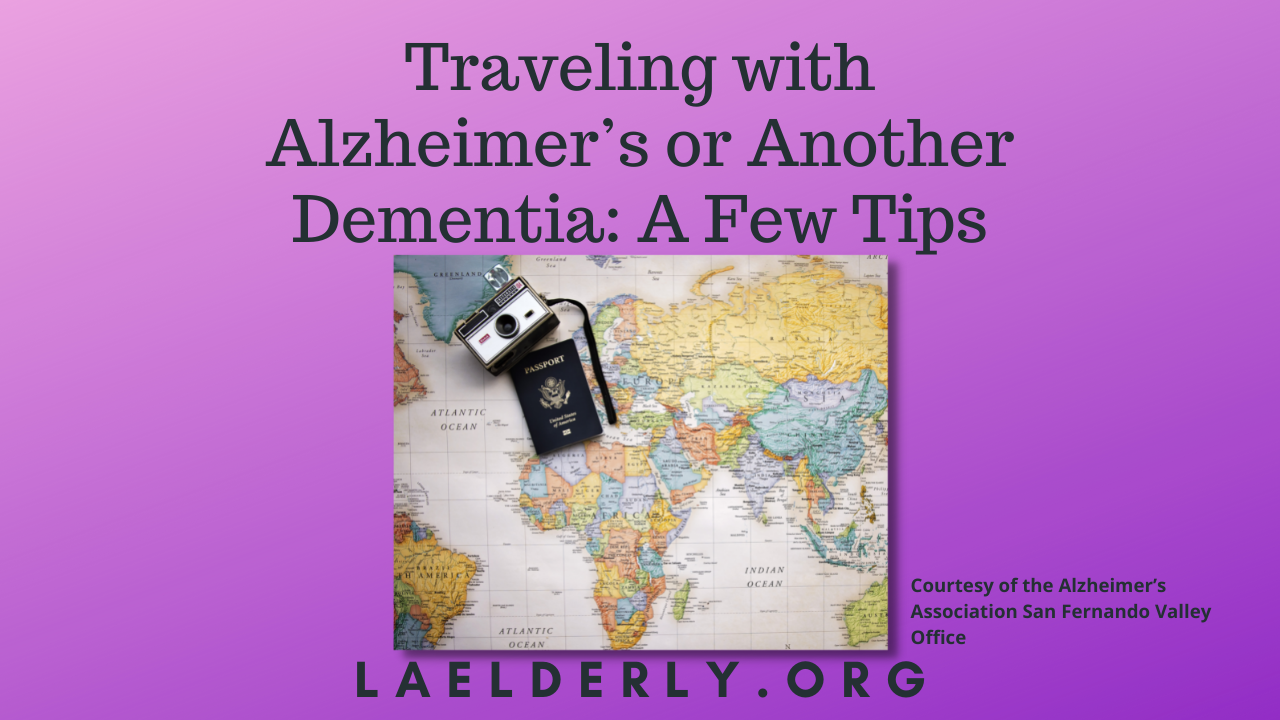Courtesy of the Alzheimer’s Association San Fernando Valley Office
Living with Alzheimer’s or another dementia does not mean it’s necessary to stop participating in meaningful activities such as travel. However, it does require planning to ensure safety, comfort and enjoyment for everyone. Here are some basic tips to create a calm, enjoyable travel experience:
- Plan ahead.
- Learn to recognize the warning signs of anxiety and agitation and identify strategies to reduce them. Discuss this plan with the person living with dementia.
- Try not to overload the person with a lot of directions or too much information.
- Environmental changes can trigger wandering or confusion: consider enrolling in MedicAlert® Wandering Support: A 24-hour nationwide emergency response service for individuals with Alzheimer’s or another dementia who wander or who have a medical emergency. If you will be at a location for an extended period of time, consider contacting the local Alzheimer’s Association for resources and support. Chapters can be found through calling the Alzheimer’s Association 24/7 Helpline at 800.272.3900.
It may be helpful to stick with the familiar. Travel to known destinations that involve as few changes in daily routine as possible. Evaluate options for the best mode of travel. Based on needs, abilities, safety and preferences, decide what would provide the most comfort and the least anxiety. When selecting destinations, consider those that have easy access to emergency health services and pharmacies.
Consider everyone’s needs and desires as you plan your trip; elaborate sightseeing trips or complicated tours may cause anxiety and confusion. If you will be staying in a hotel, consider informing the staff ahead of time of your specific needs so they can be prepared to assist you. Have a backup plan in case your trip needs to change unexpectedly. This may mean purchasing travel insurance if you have booked flights or hotels.
Carry with you an itinerary that includes details about each destination. Give copies to family members or friends you will be visiting or to emergency contacts at home. Travel during the time of day that is best for the person. For example, if he or she becomes tired or more agitated in the late afternoon, avoid traveling at this time. Have a bag of essentials with you at all times that include medications, your travel itinerary, a comfortable change of clothes, water, snacks and activities.
Remember to pack necessary medications, up-to-date medical information, a list of emergency contacts and photocopies of important legal documents.
Finally, allow plenty of time for rest- don’t over-schedule!
For more information about the traveling with Alzheimer’s disease or another dementia, visit alz.org. To find your local San Fernando Valley office or for 24/7 support, contact the Alzheimer’s Association Helpline at 800.272.3900.

